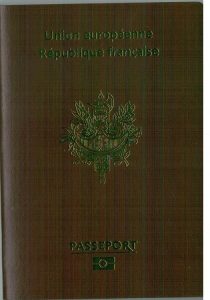Arguments for ‘sovereignty’ are prominent in several disputes, around the world. For many of the governments using the word, notably China and the UK, ‘sovereignty’ seems to be about independence and the absence of foreign interference. The term has been used for centuries in international law, apparently going back to the Peace of Westphalia in 1648, which ended the Thirty Years War. In that narrow context, a sovereign state has exclusive authority within its territory. But sovereignty means much more than that. A study of the Westphalian peace (D Croxton, 1999, The Peace of Westphalia of 1648 and the Origins of Sovereignty, International History Review 21(3)) brings together some helpful explanations of the term: sovereignty is
‘the idea that there is a final and absolute political authority in the political community … and no final and absolute authority exists elsewhere’ … By this definition, ‘sovereignty is not a fact. Authority and power are facts …[Sovereignty] is an assumption about authority.’ Hence, as John Ruggie states, sovereignty ‘signifies a form of legitimation’.
Exactly the same principle applies to domestic law. The legal theorist John Austin argued that
Every positive law, or every law strictly so called, is set by a sovereign person, or sovereign body of persons, to a member or members of the independent political society wherein that person or body is sovereign or supreme.
There are reservations to make about both these presentations, but it is important to draw out what they have in common. All of these explanations of sovereignty are concerned with legitimacy. The ‘sovereign’, whoever or whatever that may be, is the source of legitimate authority. If legitimate authority springs from a particular source, it follows that
-
- a sovereign government can make laws
- a sovereign government can make treaties, and
- a sovereign government can act collectively to exercise authority within its legitimate sphere of influence.
The first reservation to make is that sovereign authority is not ‘final’. Sovereignty is where authority starts, not necessarily where it finishes. We know, when a sovereign body makes laws, that they are laws – that they satisfy what Hart called “rules of recognition” (how we know that a rule counts as law) and “rules of change” (how we know that new rules have been created, or abolished, or added to). But after the sovereign has acted as the fount of authority, others may draw on that legitimate authority in their turn – e.g., the laws passed by devolved administrations, or the extensive use of statutory instruments in social security. The second reservation is that sovereign authority is not “supreme” authority, because it may well be subject to other authority in turn. The US constitution divides authority between a range of actors. The authority of the UK Parliament is undivided, but governments in Parliament can be voted out or corrected by the courts. In modern states, the courts usually have the power to review whether actions are legitimate. Nor is sovereignty necessarily ‘exclusive’. Many states share sovereignty internally – in federations, between states and the federal government – or externally, which is the position of the European Union.
And so to the dispute between the UK and the European Union. The EU is not simply the product of a set of treaties: it is a body that makes laws, independently of the legal systems of the Member States. That means that every member of the European Union shares sovereignty with the Union. There have been some legal challenges to this principle – most recently in Germany, where it was successfully argued that German Basic Law takes priority – but the central premise, that EU law has a direct effect on governments and citizens within the EU’s areas of exclusive competence, has been established for nearly sixty years. It is correct, then, to say that the members of the EU have given up some sovereignty to become part of the Union; and it is also correct to say that the UK, on leaving the EU, will be able to act as a sovereign state.
Clause 38 of the UK Act on the withdrawal agreement states:
It is recognised that the Parliament of the United Kingdom is sovereign. … nothing in this Act derogates from the sovereignty of the Parliament of the United Kingdom.
Nothing in that was incompatible with the Withdrawal Agreement, or likely to give the EU pause. It is simply a statement that the Parliament of the United Kingdom is the primary source of legitimate authority for UK legislation: to which the obvious response is, of course it is. The EU was relying on that legitimate authority to be used to resolve the terms of withdrawal.
What the clause doesn’t say is that the EU has no further authority, either delegated or determined by treaty. It doesn’t say, either directly or indirectly, that the EU can have no influence in decisions made by the UK government. It does not say that the UK is not to be bound by the Withdrawal Agreement, its most recent treaty with the EU. In short, the assertion of sovereignty simply doesn’t mean what some of the most ardent Brexiters wish it to mean.
